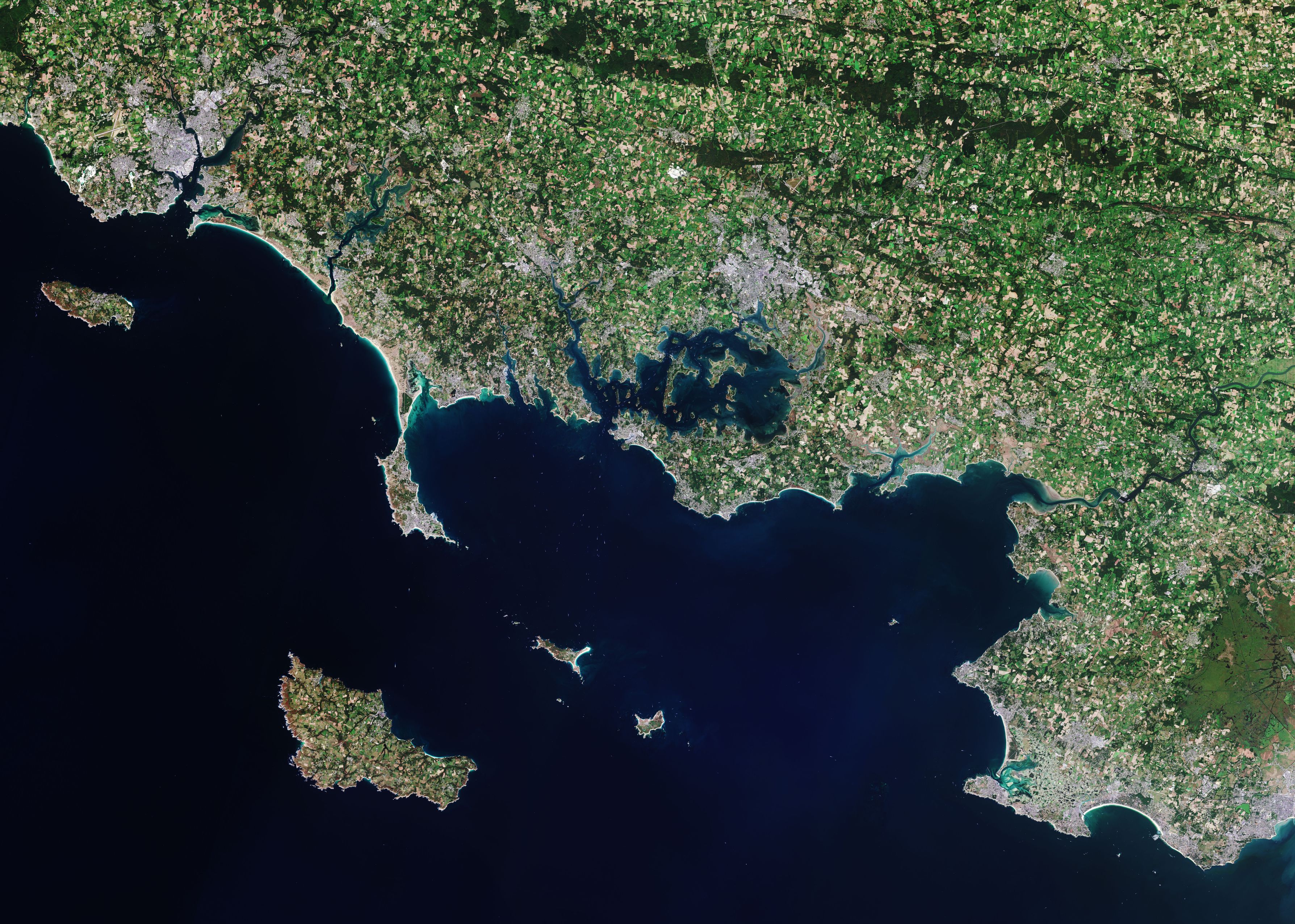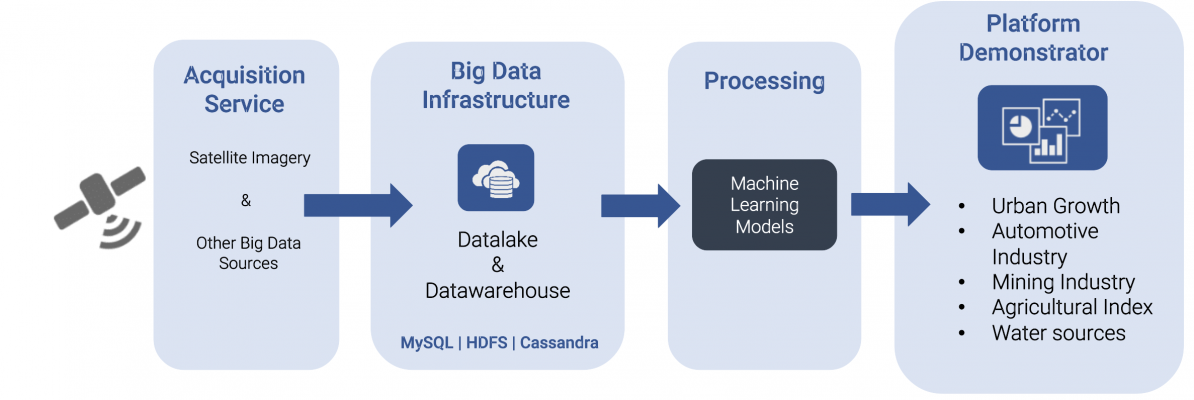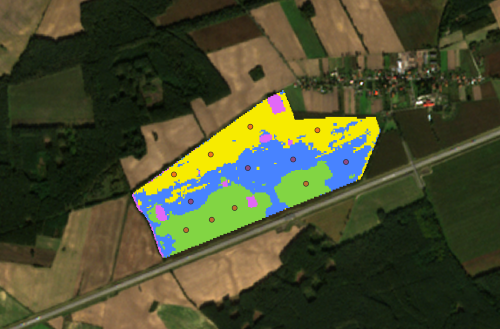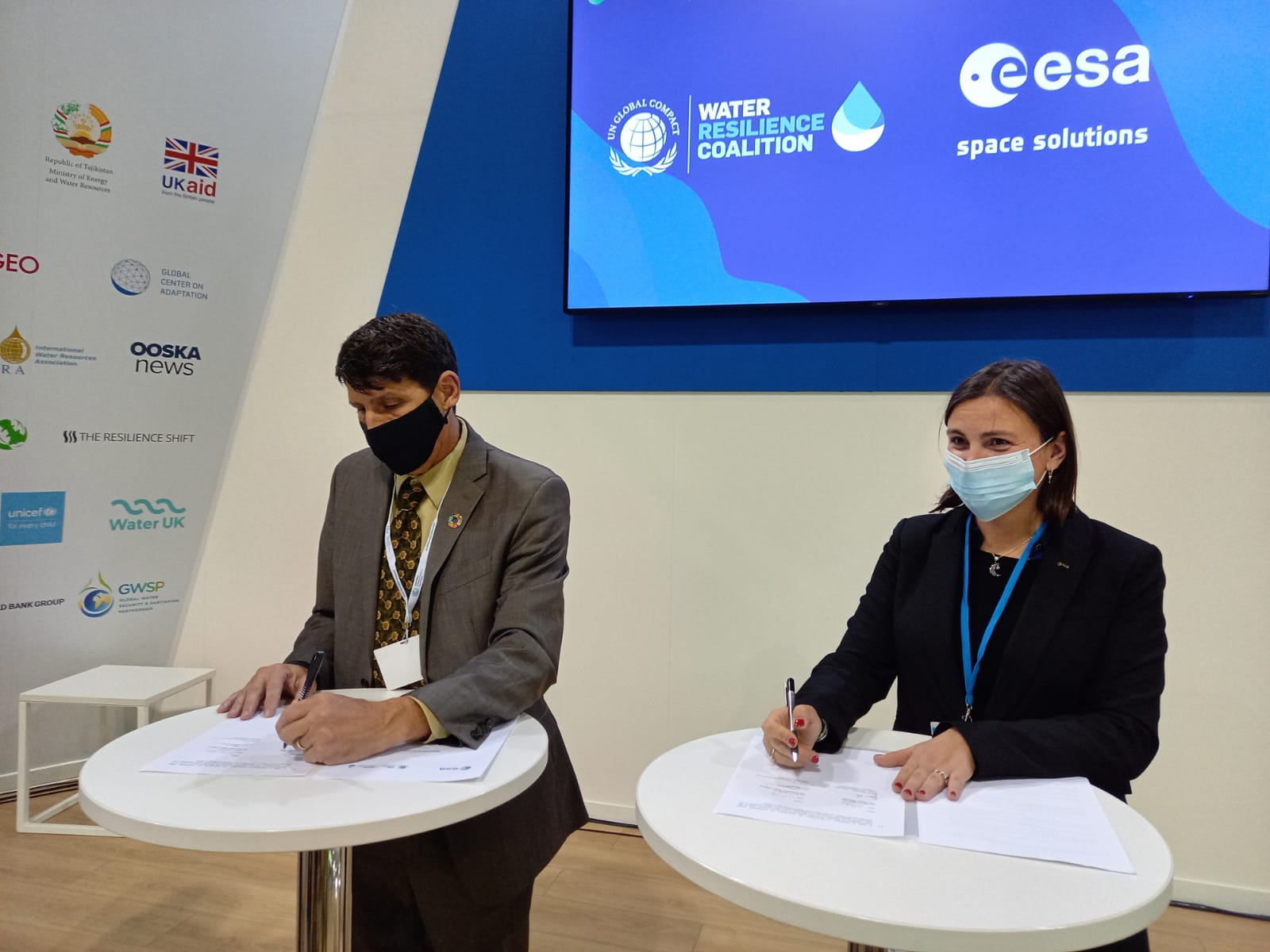Harnessing space technology for better investment planning
Thanks to a partnership with the European Space Agency (ESA), QuantCube Technology is now using satellite-derived data to provide financial institutions with additional real-time insights into macroeconomic trends.
With ESA’s guidance and funding, QuantCube has incorporated new indicators of global development, food production and weather trends into its Macroeconomic Intelligence Platform. Used by asset management firms, hedge funds, pension funds and investment banks, the QuantCube platform provides real-time indicators for global trade, inflation, tourism and other key macroeconomic variables.
In a two-year demonstration project, ESA supported QuantCube in harnessing data from the EU Copernicus Programme’s Sentinel-2 and Sentinel-5P satellites. With QuantCube already operating one of the largest data lakes in the world – processing more than 14 billion data end points – the addition of satellite data is very powerful. As a result, using artificial intelligence and big data analytics, QuantCube is able to provide an excellent view of economic changes and deliver real-time insights in granular detail at regional and country level.

Space-enabled monitoring
The four new indicators enhancing QuantCube’s Macroeconomic Intelligence Platform are:
- Urban growth – using optical images from Sentinel-2 to track urbanisation and development of cities over time.
- Human activity – combining meteorological data and atmospheric monitoring from Sentinel-5P, specifically nitrogen dioxide levels, to measure and compare human activity.
- Water stress – using Sentinel-2 images to identify fluctuations in surface water and assess the likelihood of drought.
- Agricultural yield – using images from Sentinel-2 of agricultural land use, in combination with meteorological data, to help predict changes in yields.

“Working closely with ESA on this demonstration project, we have applied artificial intelligence and deep learning techniques to ESA’s Earth observation data. Combining this with additional QuantCube data sources – including news and social media data, industry and employment data, international trade and shipping data, meteorological and oceanographic data, and more – has allowed us to create a ground-breaking new set of economic indicators,” said Thanh-Long Huynh, Chief Executive of QuantCube, based in France.
Volker Schumacher, Business Applications Engineer at ESA, said: “ESA has guided the QuantCube team through its Business Applications programme in a demonstration project over the past two years and helped to co-fund the firm’s service development into the best way of incorporating Earth observation data, for instance from the Sentinel satellites, within its real-time economic indicators."
“We’re very happy that QuantCube is now launching these four new global satellite indicators to market and that financial institutions and other organisations will be able to benefit from this new real-time economic intelligence.”






